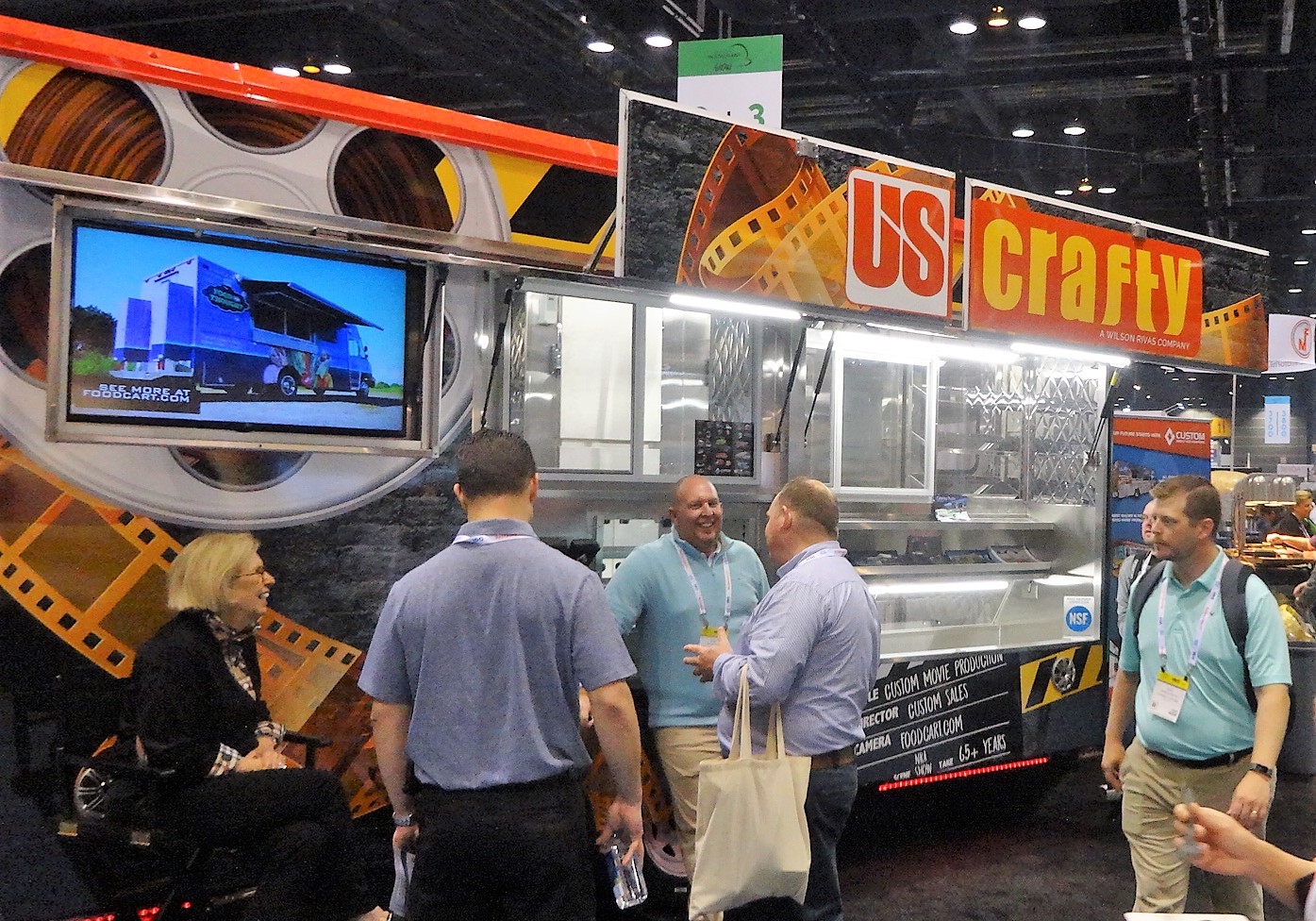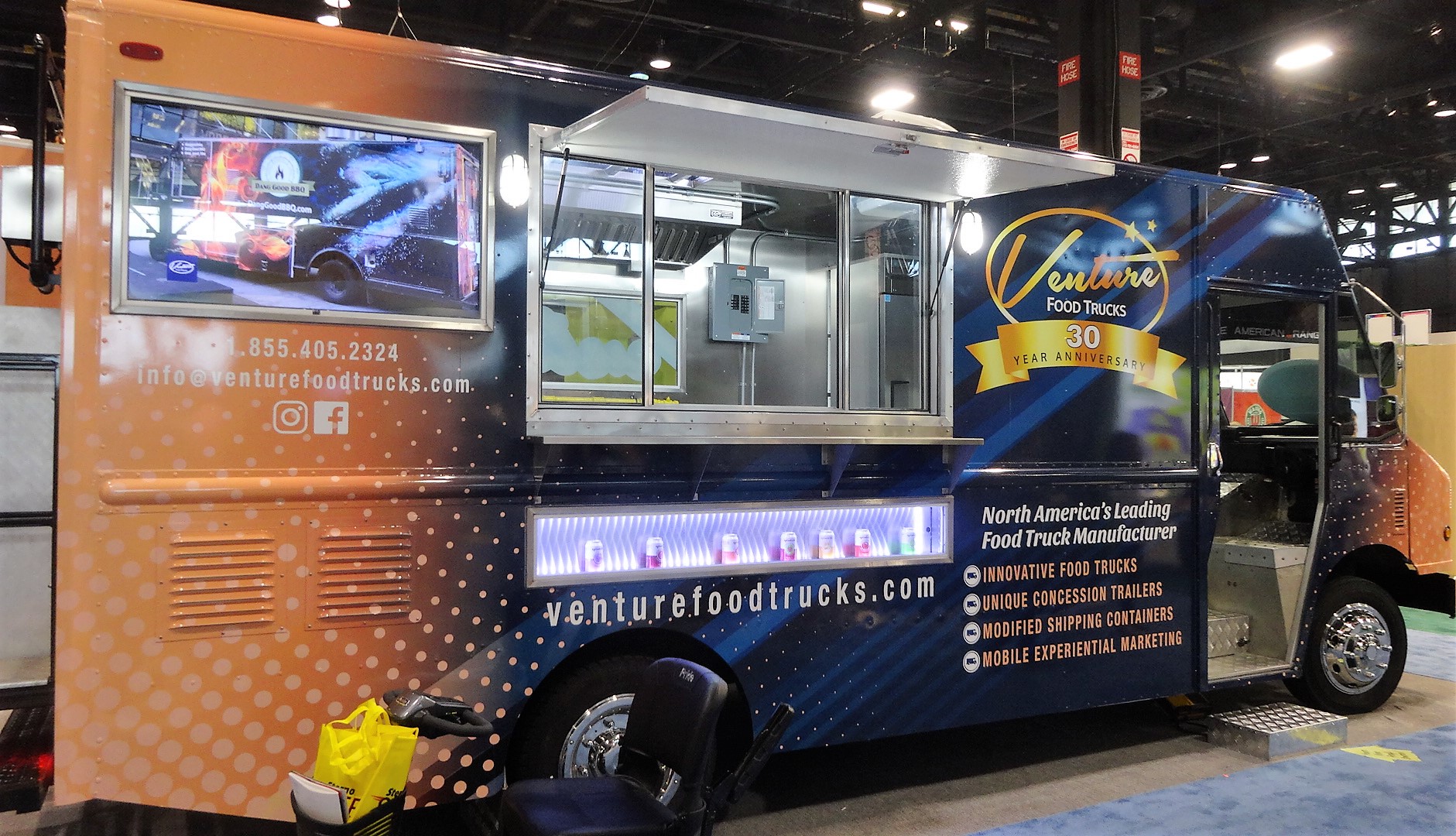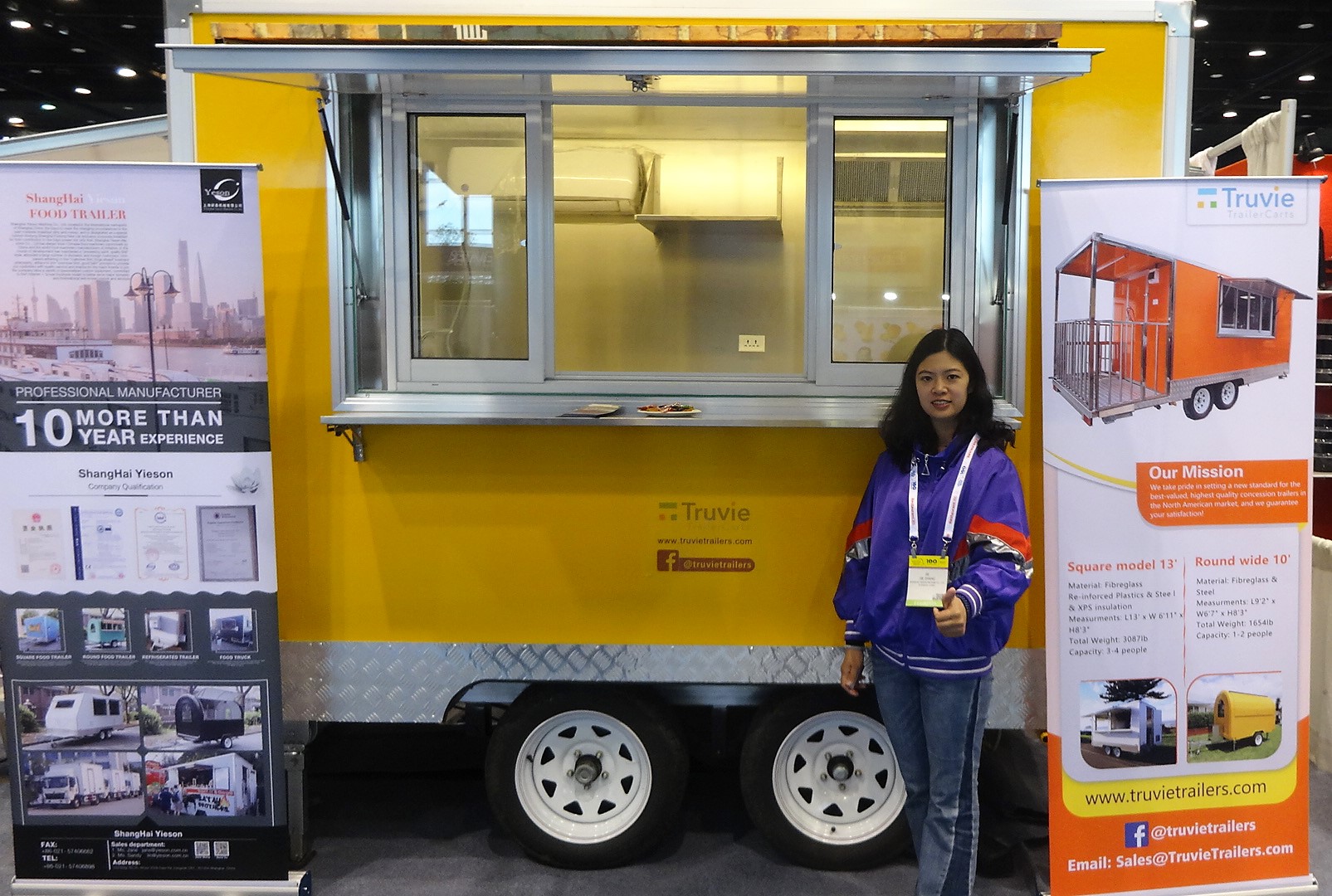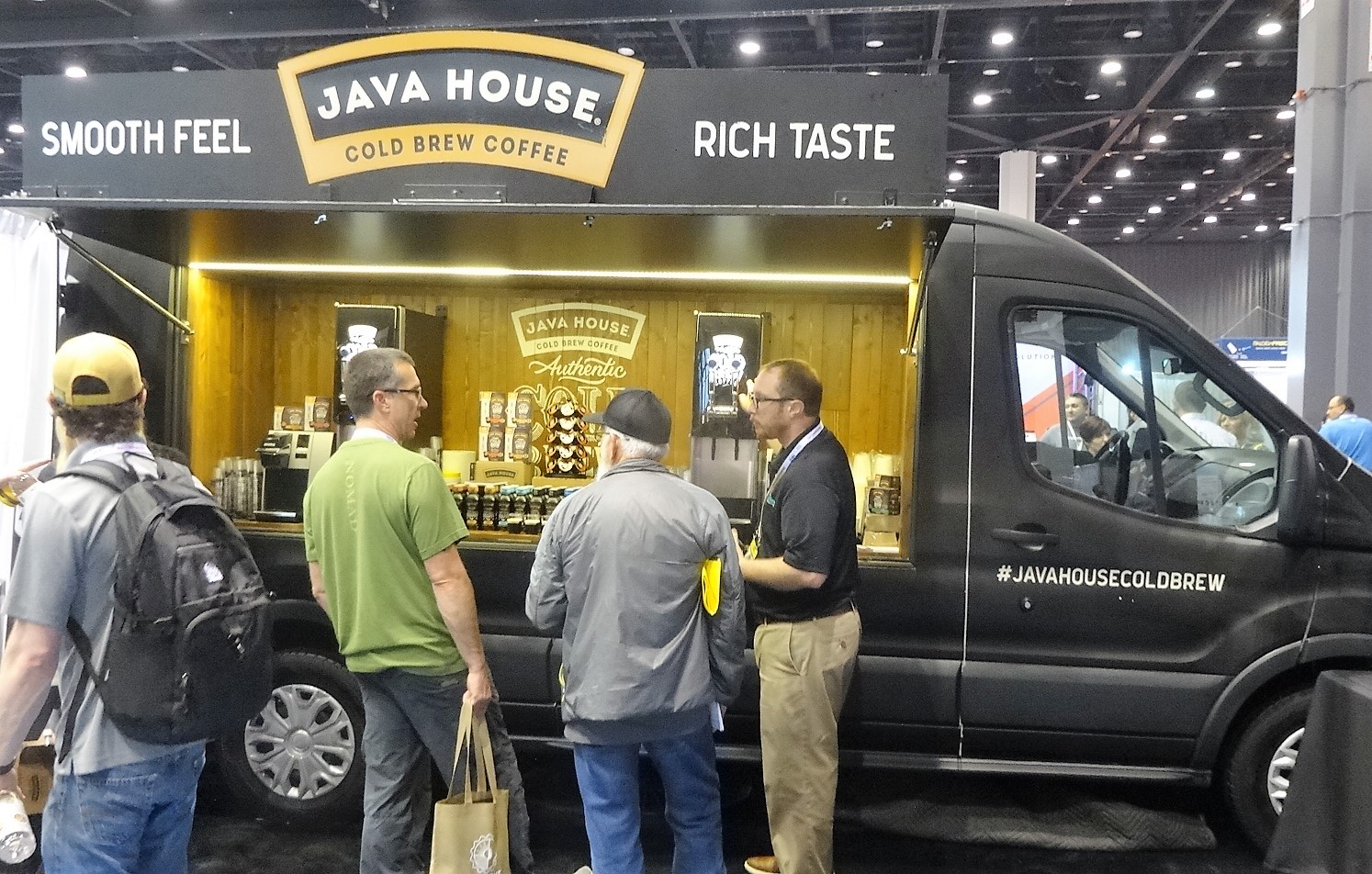Blog
National Restaurant Show keeps food truck owners up to speed on a fast changing industry
While this year's National Restaurarnt Show did not feature as many mobile equipment exhibits as in recent years, attendees had a chance to learn about the newest food trends, management and ordering tools, legal challenges and new foodservice competitors.

May 20, 2019 by Elliot Maras — Editor, Kiosk Marketplace & Vending Times
Food truck operators looking to stay on top of changes in their industry found a wealth of information at this year's National Restaurant Show at Chicago's McCormick Place. And while this year's show did not feature as many mobile equipment exhibits as in recent years, attendees had a chance to learn about the newest food trends, management and ordering tools, legal challenges and new foodservice competitors.
The food truck industry continues to grow at a fast pace as consumers appreciate the novelty of enjoying a good meal outdoors in a social environment. But just as social media gave food trucks a new tool to market their offerings and engage customers in a personal manner, technology continues to evolve in ways that bring new competitors to the fray.
Food delivery services change the playing field
While fewer food truck exhibits could be found on the trade show floor this year, more restaurant POS technology exhibits featudelivery modules as food delivery grabs a bigger share of consumer spending. Third-party delivery services such as Uber Eats and Doordash have expanded in recent years, and traditional foodservice players are either partnering with these services or offering their own deliveries. Delivery has clearly emerged as a competitive force to all foodservice channels, including food trucks.
Some food truck operators, however, think food trucks are in a position to partner with delivery services.
Steve Foreman, director of operations services at Columbus, Ohio based White Castle Systems Inc., which operates both QSRs and food trucks, attended this year's National Restaurant Show specifically to learn more about food delivery services. "We're doing everything we can to pay attention to that and stay on top of the leading edge," he told Food Truck Operator. "It has a lot of potential."
Foreman, whose company partners with four third-party delivery services, said food delivery could be an opportunity for food trucks, as he is already aware of some food trucks that are delivering to customers. He said stationary food trucks are in a position to do deliveries more than those that move around.
"There's a market there for that; I do think there's an opportunity," he said.
Foreman also attended an educational session at the show on cybersecurity, an issue he sees as especially important for independent operations that don't have big IT staffs.
Food truck demand still strong
In the meantime, he remains optimistic about his company's food trucks. "They're having a tremendous success creating brand awareness and supporting this brand," he said.
Dwayne Hoffman, senior director of franchising for Nathan's Famous, agreed the demand for food trucks continues to be as strong as ever, even though his company did not exhibit food trucks or food carts at this year's National Restaurant Show. This year's exhibit focused on the company's food offerings, he said, but interest in food trucks was strong among restaurant owners who visited the booth.
The trade show floor showcased new products and equipment for both the front and back of the house, while educational sessions brought attendees up to speed on numerous topics, such as: menu trends including dairy free, plant-based proteins, Japanese spices and the cannabis boom; equipment trends like ventless ovens and robotic saladmakers; software opportunities such as blockchain technology; and questions employers can no longer ask of job applicants.
Following are food truck highlights from the trade show floor.
ADUSA Inc.
ADUSA Inc. demonstrated its Qi.SO Self-Order Kiosk software on several Frank Mayer and Associates Inc. kiosks. Several enhancement to the software debuted at the show, including multi-language support, EZ Access ADA compliance and integration with Banyan Hills Technologies’ IoT/Device Management software. Also on display was a version of the software ADUSA Inc. is putting on food trucks for the US Army.
 |
David Anzia of Frank Mayer and Associates Inc. presents a food truck self-order kiosk in the ADUSA booth. |
Custom Mobile Food Equipment
Custom Mobile Food Equipment displayed a customizable, all aluminum food truck with all steel framing; a stainless steel interior; stainless steel appliances; refrigeration and freezing with remote exterior mounted compressors; pressurized water system; roll-out awnings; and an onboard generator.
 |
David Kyle presents a model food truck at the Custom Mobile Food Equipment exhibit. |
Venture Food Trucks
Venture Food Trucks demonstrated both a food truck and a food container, both equipped with kitchen appliances, including refrigeration and cosmetic customizations, which are available for sale or lease. The company provides assistance with meeting government inspections and offers financing options and marketing advice.
 |
Venture Food Trucks displays one of its fully equipped food trucks. |
Shanghai Yieson Machine Co.
The Shanghai Yieson Machine Co. demonstrated a pair of food trailers. The trailers come in different shapes, sizes and colors. The Shanghai-based company ships its products internationally and also makes food trucks, food carts and freezer/chiller trailers.
 |
Crystal Jie Zhana shows a trailer at the Shanghai Yieson Machine Company booth. |
The Java House
The Java House, a coffee brewer and retailer, was one of several exhibitors that used a food truck to display products, demonstrating the food truck's rising popularity and its unique role as a marketing and merchandising vehicle.
 |
The Java House demonstrates its products in a food truck on the show floor. |
About Elliot Maras
Elliot Maras is the editor of Kiosk Marketplace and Vending Times. He brings three decades covering unattended retail and commercial foodservice.
 ChatGPT
ChatGPT Grok
Grok Perplexity
Perplexity Claude
Claude





